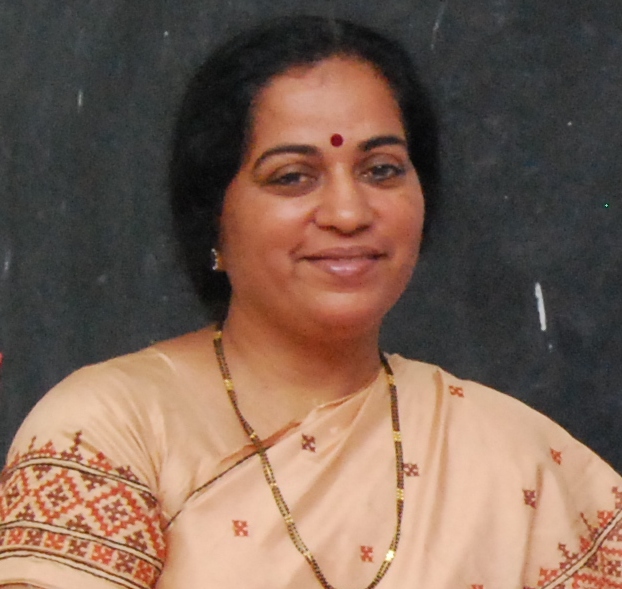| Course Name: |
Online Refresher Course in Social Work on ‘CONTEMPORARY SOCIAL WORK PRACTICE IN INDIA’ |
| Course Image |

Note:-click the above image to open image in a new browser tab.
|
| Introduction: |
Social work education as a stream of higher education system is more than 100 years old in the world and grew remarkably in the past decades. In India, the introduction of formal education in social work started with the establishment of Sir Dorabji Tata Graduate School of Social Work (presently known as Tata Institute of Social Sciences) at Mumbai in 1936. However, the curriculum for social work education in India has been borrowed from United Kingdom and United States of America. Further, most of the universities in India have adopted the old western model of social work education/curriculum in India without examining their suitability in the local context. As a nation, India is very diverse in cultural characteristics. There is interplay of many socio, cultural, economic, political and even geographical factors within and from one location to the other. People within India are divided along ethnic, linguistic, cultural, regional, caste and religious lines. India has more than 2000 ethnic groups and sub groups. There are 4693 communities, which include several thousands of endogamous groups, speaking 325 functioning languages and writing 25 different scripts. With 1.19 billion population size, it is characterized by a multi-ethnic, multi-cultural, multi lingual and multi religious environment that makes the society highly diverse. This diversity is further complicated by the fact that some settlements urbanize, industrialize and modernize faster than others. |
| Objectives: |
1. Trace indigenous practice of social work in India to provide linkages between classroom learning and field realities;
2. Incorporation of indigenous knowledge to strengthen the social work education
3. To propose/design the syllabus for a separate paper on Indian social work in social work curriculum
4. Demonstrate an understanding and appreciation for human diversity, to engage in non-discriminatory culturally sensitive practice that seeks social and economic justice for clients, without regard to age, class, caste, culture, disability, ethnicity, family structure, gender, marital status, national origin, race, religion, and sexual orientation.
5. Use appropriate supervision and consultation to conduct research and disseminate research findings that contribute to enhancement of students' personal and professional development.
|
| Start Date: |
04. 03. 2022 |
| End Date: |
17. 03. 2022 |
| University/College: |
Pondicherry University |
| About Instructor: |
R NALINI, Professor, Department of Social Work, Pondicherry University, has done her PhD (Social Work), Department of Social Work, University of Delhi., Delhi, gold medalist in MSW, she is the first head of the Department of Social Work, Pondicherry University and completed her second term as Head, Department of Social Work in January 2022. As Head (I/C) Center for Women’s Studies, Poncherry University she initiated the M.A. programme in Women’s Studies. She began her academic career as Lecturer, Department of Social Work, Aditi Mahavidyalaya, University of Delhi, She has over seven years of experience as HR Professional in the Corporate Sector. She has several publications to her credit in books and reputed journals. Her first book ‘Social Work and the Workplace’ was fully funded by Indian Council for Social Sciences Research (ICSSR). Currently, she is actively involved as an external committee member and expert for implementation of the Prevention of Sexual Harassment against Women in the Workplace Act, 2013. Under her guidance, Ph. D. (Social Work) – degree awarded to eight scholars currently guiding 8 scholars. |
| Weekly Plan: |
Length hours per week:
6 hours per day *7 days = 42
Duration in Weeks: 14 days |
| Instructor Name: |
Prof. M. KannanPrincipal (Retd.) Madurai Institute\nProf. Mohan A K, Head, Dept of Sociology, CUK\nDr. A. J. Christopher\nDr. Neelam Sukhramani, Jamia milia Islamia\nDr. Suresh Pathare, Ahmednagar\nDr. Meenu Anand, Delhi Univ.\nProf. Vijay Raghavan\nDr. Pamela Singla, Delhi Univ.\nProf. Deepak Walokar Director Karve Institute o\nProf G Gurubharathy\nDr. Shazia Manzoor, Kashmir Univ.\nDr. F. X. Lovelina, Bharatiyar Univ, Coimbatore\nDr. Archana Dassi, Jamia Millia Islamia, New Delhi\nDr. Asok Kumar Sarkar Professor & Head VISVA-BHARA\nProf. Neera Agnimitra, Delhi Univ.\nProf. Sunita Dinesh Nambiyar,Maharaja Sayjirao Un \nDr. Anuradha Komanduri, SPMVV, Tirupathi\n |
| Instructors Photo |

Note:-click the above image to open image in a new browser tab.
|
| Certification: |
(i) A+: 85 percent and above
(ii) A: 70 per cent to less than or equal to 84 percent
(iii) B: 60 per cent to less than or equal to 69 per cent
(iv) C: 50 per cent to less than or equal to 59 per cent
(v) F: Below 49 per cent
Those teacher participants who get F grades are required to repeat the programme
after a gap of one year without financial commitment to UGC-HRDC. |
| Duration In Weeks: |
2 |
| Instructors Photo: |
2 |
| Assessment Plan Method: |
The total marks were fixed at 100 and the same may be decided in the following
manner:
(i) Overall response - 25
(ii) Seminars - 15
(iii) Project work- 20
(iv) Micro-teaching - 10
(v) Multiple-choice objective tests -30
|
| Language: |
English |
| Course Style: |
Instructor-led |
| Length Hours Per Week: |
Length hours per week: 6 hours per day *7 days = 42 |
| Level: |
Advance |